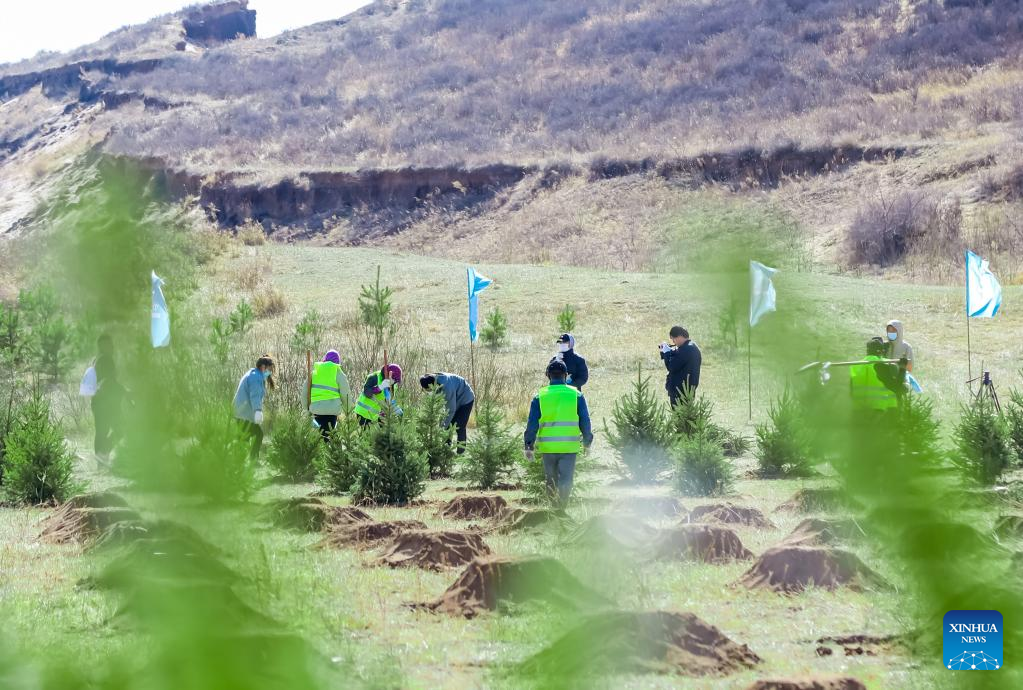
Volunteers plant trees in the Hunshandake Sandland, north China's Inner Mongolia Autonomous Region, April 22, 2023. (Xinhua/Li Yunping)
HOHHOT, April 22 (Xinhua) -- Among activities to mark the annual Earth Day on Saturday, north China's Inner Mongolia Autonomous Region launched a tree-planting campaign to strengthen a green belt that besieges the Hunshandake Sandland, the closest threat to the national capital of Beijing.
The regional forestry and grassland department Saturday mobilized more than 100 volunteers to plant spruce trees in the green belt, stretching 420 km long with a width ranging from one to 10 km in the sandy land, about 180 km to the north of Beijing.
Over the past ten years, Inner Mongolia has added more than 10 million mu (about 666,667 hectares) of afforestation and 30 million mu of grass on average every year, ranking first in China, said Ma Qiang, deputy director of the department at the tree-planting activity.
Home to four of the country's major deserts and four major sandy areas, Inner Mongolia stands at the forefront of China's afforestation and sand control work.
In the last ten years, Inner Mongolia has completed 12 million mu of sand control programs on average every year, accounting for more than 40 percent of the country's total desertification control work in the corresponding period, said Ma. ■